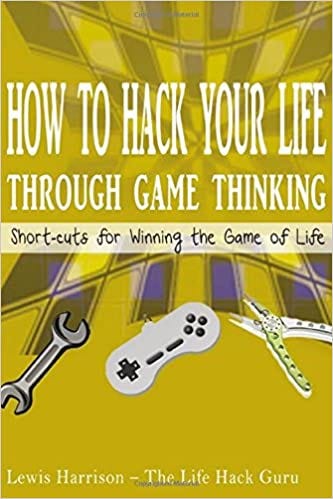The Best Tips on Prepping, Thrift, Minimalism, and Simple Living
An introduction to Frugal Friday
—————————————————
“This subscription newsletter serves a demographic of highly intelligent readers, deep thinkers, life hackers, preppers, entrepreneurs, and survivalists. I especially focus on those with a passion for ideas, critical thinking, self-awareness, healing, the arts, personal development, and a desire to understand the world around them.
Readers of my posts are usually tired of being patronized elsewhere by fact-less, opinionated know-nothings, misinformation, conspiracy theories, and fake news.
—————————————————
“Knowledge is power, wisdom brings meaning, contentment, and happiness!”
—————————————————
This newsletter is a reader-supported publication. To receive new posts, and bonuses, and to become part of my Inner Circle please become a paid subscriber. (Sign up at the end of this newsletter)
—————————————————
On a personal note: Please excuse grammatical errors, typos, repetition, and any general nonsense, and such in this post. I am getting a bit older now, and I have about 20,000 pages of information that must get published before I leave the mortal coil. I simply write and publish more than my humble editors are able to correct. If you find enough errors you are welcome to contact me about being an editor of my work.
Thanks for sharing this newsletter with your friends and associates -
———————————————————
A 2-Minute Read
An important term that we seldom hear any more is frugality. Anyone interested in prepping, thrift, minimalism, survivalism, DIY and Simple Living would be wise to explore the art and science of frugality. Being frugal is not the same as being pathologically cheap. To be frugal is to have wisdom concerning the often subtle distinction between want and need. To be frugal is to be sparing, thrifty, prudent or economical in the consumption of consumable resources such as food, time or money, and avoiding waste, lavishness or extravagance. In behavioral science, frugality has been defined as the tendency to acquire goods and services in a restrained manner, and resourceful use of already owned economic goods and services, to achieve a longer term goal.
If you go to Wikipedia and research the most commonly asked questions concerning frugality this is what you will find:
What is frugal behavior?
What is the difference between frugal and cheap?
What is frugal and prudent?
Who made the word frugal?
I will explore all of these though not necessarily in the order they were asked.
What is Frugal Behavior?
Common techniques, methods, and strategies of frugality include reduction of waste, curbing costly habits, suppressing instant gratification by means of…
fiscal self-restraint,
seeking efficiency,
frugal engineering
repurposing items found in Building Recycling Rooms
dumpster diving
freeganism
defying expensive social norms,
life hacking,
prepping,
embracing cost-free options,
using barter,
staying well-informed about local circumstances and both market and product/service realities.
…and avoiding manipulative advertising, Frugality may contribute to health by leading people to avoid products that are both expensive and unhealthy when used to excess.
Frugal living is mainly practiced by those who…
seek to live a struggle free life,
aim to cut expenses,
have more money,
…and get the most they possibly can from their money.
The Philosophy Behind Frugal Living
In the context of some belief systems, frugality is a philosophy in which one does not trust (or is deeply wary of) "expert" knowledge from commercial markets or corporate cultures, claiming to know what is in the best economic, material, or spiritual interests of the individual.
Different spiritual and Intentional Living communities consider frugality to be a virtue and even a spiritual discipline. The Religious Society of Friends (Quakers) and the Puritans are among the most proactive examples of such groups. The basic philosophy behind this is the idea that people ought to save money in order to allocate it to more charitable purposes, such as helping others in need.
There are also environmentalists, bush crafter, and proponents of sustainability who consider frugality to be a virtue through which humans can make use of their ancestral skills as hunter-gatherers, carrying little and needing little, and finding meaning in nature instead of man-made conventions or religion. Henry David Thoreau expressed a similar philosophy in Walden, with his zest for self-reliance and minimal possessions while living simply in the woods.
Frugality in the Corporate World
Frugality has been adopted as a strategic imperative by large enterprises as a means of cost reduction through engenderment of a philosophy of careful spending amongst the workforce.] Cost reduction is often perceived negatively, be it within a corporate organization or in society, so inviting each employee to embrace frugality transfers the burden of cost reduction from management to the employee. In doing so, corporations introduce a moral obligation to cost cutting, proposing the notion that careful management of costs is in the company, shareholder and employee's best interests. There are many approaches and motivating factors that might cause a person to adopt a frugal lifestyle. These include.
Simple living
Anti-consumerism
Dressing well with a budget conscious awareness (Capsule wardrobe)
A rejection of Conspicuous consumption
Ethical consumerism
Extreme Cheapskates
Intentional living
Overconsumption
Paradox of thrift
Price comparison service
Sustainable living
The Asian Perspective Concerning Frugality and Regret
I tend to avoid having regret about anything, still even in Zen culture, and as a reflection of greater Japanese thought there is one interesting concept concerning frugality and regret. It is the word mottainai?
Mottainai is a keyword for global environment issues, meaning "Don't waste what is valuable."
According to the prestigious Japanese dictionary Kojien, the word mottainai (pronounced moat-tie-nigh) is most commonly used to express a feeling of regret when something is put to waste without deriving its value.
Consider upgrading to a paid subscription and receive our The Weekend Addition.
I am constantly expanding the layout and organization on this newsletter - adding special weekend and weekly sections on various topics supplementing the regular newsletter. Among the area I and guest writer post about is sports psychology, futurism and statistical forecasting, Business and personal finance, the Arts, Science, spirituality, self improvement, personal development, wellness, Mental Health Awareness, the Environment, Film revues, Travel, and other features.
What Paid Subscribers will be Getting This Weekend
This weekend I’ll be posting article and videos about:
Emotional Healing: A free and quick tips and hack to be happier more often.
Health and Healing: Concerning about the flu? Learn how eliminating “bad” gut bacteria can reduce the risk of potentially fatal respiratory infections.
History and Politics: How a Futuristic Thinking Polish statesman predicted Putin’s invasion of Ukraine
Sports, Psychology, and Multi-culturalism: How the Qatar World Cup might shatter colonial myths
The Environment: Ornithologists have found a rare bird whose species was thought to be extinct since 1882. Watch the video here.
Wind Turbine Problem Solved: Birds—from eagles to wrens—share a deadly habit of blithely flying into wind turbine blades that, at their outer edges, can reach speeds of up to 170 miles per hour. The tools wind farm owners have been using to cut the casualty rate are often high-tech, complex, and expensive. Now, scientists believe they’ve hit on a surprisingly simple solution. Learn about that solution here
For Animal Lovers: Music and the Zen Master Dog
Movie Review: If you want to know the secret of the War in the Ukraine, fighting in the Congo, the Civil War in Yemen, and many other conflicts around the world, the answer is simple answer can be found in this movie
Don’t miss any of these great stories. Move your weekend experience to a higher level. Upgrade to a paid subscription to the Inner Circle Newsletter.
Learn how by clicking below the arrow
——————————————————————————
——————————————————————————
For more great articles, videos, advanced prepper tips, spiritual wisdom, and life hacks please upgrade to a paid subscription at the Self Improvement Inner Circle (Part of the Life Strategies Playbook).
Just click below the arrow to learn more…
The article is an excerpt from a seminar I taugh,t based on my book How to Hack Your Life through Game Thinking: Short-cuts for Winning the Game of Life. Order the book here.
https://www.amazon.ca/Hack-Your-Life-Through-Thinking/dp/1542984084






